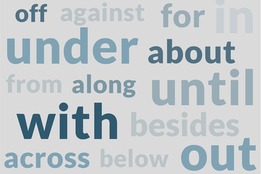What to KnowIn cases where you are referring to the state of being uncovered or naked the word you want is bare: “bare necessities,” “bare essentials,” “bare legs,” “bare bones,” “bare-knuckle,” and so on. The verb bare has only one meaning: “to uncover.” All other verb uses are for bear: “bearing children,” “bear south on the expressway,” “it bears repeating.” Bear is the only one of this pair that can also be a noun.

Yes, this bear (animal) is bare (unclothed)
The English language contains a fair number of words that are pronounced the same way but differ in meaning or spelling (such as too, two, and to). These are called homophones (homo = “similar,” phone = “sound”). Bare and bear are two that people often confuse, not least because they share all four of their letters. You might even say they can be a real bear (cough) to tell apart, but here’s a handy explainer to help you out.
‘Bare’ and ‘bear’ as verbs
The first thing to remember when deciding between bare and bear is that, as a verb, bare has only one meaning, which is “to uncover.” Bare can be used for uncovering things both literally and figuratively. When your dog bares its teeth, it is removing the covering of its lips from its pearly whites. “Baring your soul” to your bestie means revealing, or uncovering, the truth about how you feel. If you’re talking about the action of uncovering or revealing something, the word you want is bare.
The verb form of bear has a much wider range of meanings. When you can’t bear to hear a sad song, you can no longer “accept or endure” it. “The right to bear arms” means the right to carry weapons (“the right to bare arms” would mean the right to wear short sleeves). Bear can also mean “give birth to,” “produce as yield” (e.g. loans that bear interest), or “to produce fruit,” among other definitions. You want your pear tree to bear pears, not to be bare of pears.
‘Bare’ and ‘bear’ as adjectives
Bare as an adjective has a number of possible meanings (including “lacking clothing,” “mere,” or “without amplification or adornment”). A bare-knuckle brawl is one between two fighters who are not wearing gloves. A bare majority is the smallest possible majority; the bare minimum is the least amount. If you can open a tight pickle jar with your bare hands, it means you don’t need to hold a potholder or the corner of your shirt to get at that briny goodness.
Bear, on the other hand, is not an adjective, although the noun form of the word can function like an adjective when it is used to modify other nouns—think bear market, bear habitat, or bear cubs. If you email someone asking for just the most basic and unadorned information, you want the bare facts. You don’t want the bear facts, unless you are interested in grizzlies or Winnie the Pooh.
‘Bear’ as a noun
Bear is the only one of these two words that is used as a noun. It can refer to "any one of a group of large and heavy animals that have thick hair and sharp claws and that can stand on two legs like a person," and it has a number of figurative meanings, including "something that is difficult to do or deal with.”
BEAR Phrases
bear in mind
bear weight
can't bear
cross to bear
right to bear arms
bear down on
easier to bear
bring to bear
bear witness
bear fruit
grin and bear it
BARE Phrases
bare minimum
bare necessities
bare one's soul
bare one's teeth
bare (it) all
bare-handed
bare-knuckled
bare-assed
bare bones
lay bare
A Trick for Telling Them Apart
When choosing between bear and bare, consider that most uses of bear imply the presence of something, while bare suggests a removal or absence. Someone with a cross to bear is carrying a metaphorical weight. To bear witness is to provide testimony. But if your intentions are laid bare, you’ve run out ways to disguise them; and if your cupboards are bare, you’ve eaten all the food. As a mnemonic device, therefore, it may help to think of an actual bear as having a presence (and being something you do not want to carry). That approach could be worth bearing in mind.











